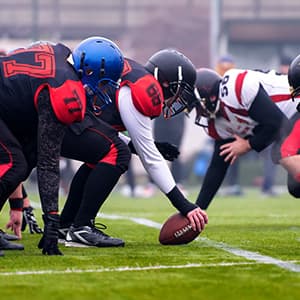

Savannah State Tigers Football Tickets
Up to 30% Off Compared to Competitors.
Location: Select Location (e.g, New York)
Events Nearby
We're Sorry. There are currently no events near you.
About Savannah State Tigers Football
Currently, the Savannah State Tigers football team competes at the NCAA Division II level and is looking to regain its former glory through competitive play in the Southern Intercollegiate Athletic Conference (SIAC). The 2023 season has shown promise, with the team showcasing youthful talent and a revitalized coaching staff. Recent events include thrilling home games at Ted A. Wright Stadium, which has seen increased attendance as the community rallies behind their team. The Tigers have scheduled a mix of traditional rivals and new challengers, hoping to create excitement and a strong following. In addition, Savannah State is focused on enhancing its facilities and engaging local fans through promotional events, including meet-and-greet opportunities with players and special theme nights during games. Efforts are also being made to strengthen the alumni network, providing former players a way to support the current team and foster a sense of community around Savannah State football.
Savannah State Tigers Football History
The Savannah State Tigers football team represents Savannah State University in Savannah, Georgia. Established in 1906, it is one of the oldest football programs in the nation. The Tigers initially competed in various athletic associations and were members of the National Association of Intercollegiate Athletics (NAIA) before transitioning to the NCAA. The program has a rich history of success, particularly during its time in the Southern Intercollegiate Athletic Conference (SIAC) and later in the Mid-Eastern Athletic Conference (MEAC). Throughout the decades, the Tigers have produced notable athletes and have seen several successful seasons, marked especially between the late 1960s and early 2000s, with appearances in various post-season bowls. However, they also faced a decline in the 2000s but have since focused on rebuilding the program through strategic recruitment and community engagement.
